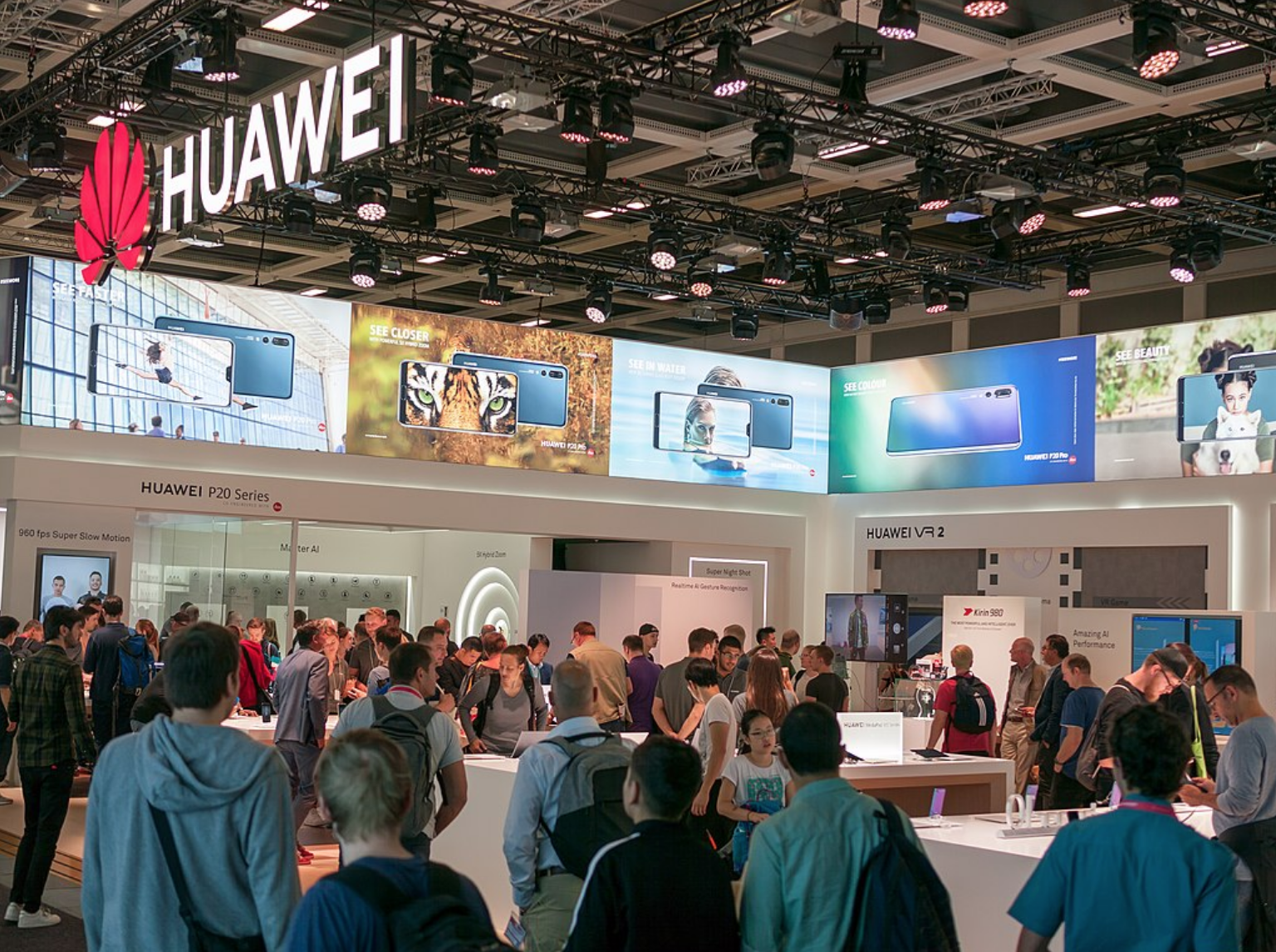
By Matt Kirschner
On December 1, 2018, Meng Wanzhou—chief financial officer of Chinese tech giant Huawei—arrived at Vancouver International Airport after a twelve hour flight from Hong Kong. Meng was about to board a plane heading to Mexico City when she was suddenly confronted by Canadian border agents who detained and questioned her for almost three hours. Finally, the border agents informed Meng that she was being arrested per the U.S.’s request on charges that Huawei had violated American trade sanctions on Iran. Little did Canada realize the political embroilment they were getting themselves into. To better understand the significance of Meng’s arrest, we must first analyze the political and economic circumstances allowing the arrest to take place.
Many Americans haven’t heard of Huawei and might be surprised to learn that they are the largest provider of telecommunications equipment in the world as well as the second largest manufacturer of smartphones—behind Samsung and ahead of Apple. The U.S., however, has been skeptical of Huawei since 2012, believing the Shenzhen-based tech giant has close ties with the Chinese government. While this claim lacks hard supporting evidence, many are suspicious of Huawei’s founder and chairman Ren Zhengfei—also the father of CFO Meng Wanzhou—who served in the People’s Liberation Army and landed contracts with the Chinese government in the early stages of Huawei’s development. China later invested tens of billions of dollars in the company, helping launch Huawei to its current status at the forefront of global telecommunications. Although China’s influence over Huawei and other private companies is unclear, Huawei has publicly distanced itself from the government. In 2019, Ren said in a BBC interview that Huawei “will never undertake any spying activities. If we have any such actions, then I’ll shut the company down.”
Despite security concerns regarding Beijing’s involvement in the company, Huawei has recently become more prominent due to their leading role in the development of a new game-changing technology: 5G. Many of us don’t pay much attention to the tiny 4G or LTE symbol in the top left corner of our smartphones and may not realize the significance of the leap to 5G. What exactly is 5G and why is it so important? 5G—the fifth generation of cellular wireless technology—is expected to shape the future of technological innovation, supporting download speeds 100 times faster than 4G and providing mobile data connections for artificial intelligence, virtual reality headsets, self-driving cars, telemedicine, etc. Currently, Huawei owns more patents for 5G infrastructure than any other company in the world and sells high quality networking gear for prices at least 20% cheaper than its competitors’, according to Bloomberg News. Conversely, very few U.S. companies manufacture 5G technology’s most critical components. While the U.S. is usually ahead of the game when it comes to technological breakthroughs, China is challenging U.S. tech companies as Huawei becomes the most sought-after 5G telecom equipment supplier.
Countries around the world are flocking to Huawei, with much of Europe, Africa, the Middle East and the Americas using at least some of Huawei’s equipment to install 5G networks. Due to Huawei’s expanding role in developing 5G infrastructure across the globe, the U.S. is increasingly worried about cybersecurity and China’s ability to spy on other countries and attack communications networks and public utilities. In 2019, the U.S. blocked American companies from doing business with Huawei; however, American telecom firms claimed that banning Huawei products would set back 5G development in the U.S. by several years. As a result, the U.S. amended its policy to allow limited cooperation between U.S. companies and Huawei. Additionally, the U.S. has pressured other countries to ban Huawei to little avail. Even the UK recruited Huawei to help develop their 5G networks. While Britain shares the U.S.’s concerns about security, they claim to be able to minimize security risks by scrutinizing Huawei and their software.
With Huawei expanding their influence and few countries resisting, the U.S. is attacking the company with allegation after allegation in an attempt to cripple the tech giant. The U.S. Department of Justice filed a host of criminal charges against Huawei and Meng that now include bank fraud, technology theft, and theft of trade secrets. Meanwhile, Beijing has accused Canada of aiding the U.S. in a “witch hunt.” Shortly after Meng’s arrest in Canada, China arrested two Canadians on espionage charges and sentenced another Canadian to death on a drug charge. Canada has pressured the U.S. to resolve the dispute with China over Meng’s arrest, but the U.S. has done little to aid their ally. In an interview with Reuters news agency, President Trump declared his willingness to intervene in Meng’s case only if it would help him achieve a better trade deal with China. President Trump’s statement contributed more to Meng’s legal defense that the U.S.’s charges were politically motivated and less to a trade deal. After more than a year, Meng remains under house arrest in Vancouver.
If you’re the leader of a country wanting to build 5G infrastructure, who are you going to call? With Huawei’s dominant position, China should feel confident Huawei will get the call. But Trump isn’t giving up: “I want 5G, and even 6G, technology in the United States as soon as possible,” Trump tweeted. Since 6G technology has yet to be invented, the Chinese are not exactly trembling over Trump’s cheerleading. Until 6G comes around, the U.S. might want to rethink its role as the technology leader of the world.
Matt Kirschner is a rising sophomore in Ezra Stiles College. He can be contacted at matt.kirschner@yale.edu.